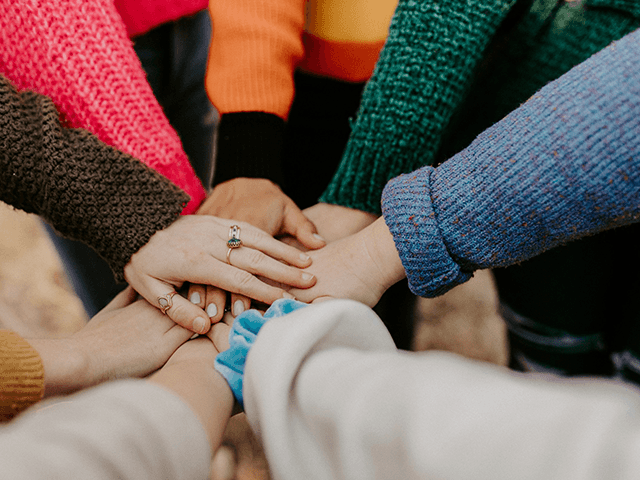
The Laudato Si Platform Committee offers one final goal: Goal 7 – Community resilience and empowerment. Words do inspire. When we say “community,” “resilience,” “empowerment,” — we stand a little taller, don’t we? We speak them with conviction.
So let us ask: What needs to happen so that suspicion dissolves, judgements cease, and healing begins? What enables a person to lay down their sense of entitlement in the face of the harm it causes? How do we free ourselves from fear so we can listen to new insights and learnings – and embrace change?
Pope Francis has repeatedly spoken of “synodality” as a way of being Church. Goal 7 invites us to “envisage a synodal journey of community engagement and participatory action at various levels.” If we did envisage — that is, imagine or realize — such a journey what would we experience? What would we expect?
We would expect that listening is central; people listening to each other and to all creation. As we set aside our own preferences and ideologies, our judgments and fears, to listen to others we discover a change taking place. We begin to engage with others — with nature — and relationships begin to develop.
As we continue along this synodal journey we begin to listen to where each other is coming from. We slowly begin to really hear the experiences, the struggles, the limitations and gifts, the hopes and dreams of each other. If we are fully attentive we can also listen to the communication happening in the natural world all around us. We might even be able to learn from it.
This synodal journey may be the only way that the climate crisis can be embraced and halted — if not reversed.
If I hear from individuals how changing weather patterns are impacting their lives, what seems to me to be only a slight increase in temperature may become more urgent to address. Seek out the stories of farmers, wine makers, the elderly, fishers, islanders, polar bears. If I listen to the stories of the poor or people with disabilities who depend on public transportation to travel I may broaden my attention on energy efficient automobiles to also include an accessible and dependable public transportation system. If I listen for and really hear the concerns of mothers for their asthmatic children who are growing up in areas of industrial pollution, I may better understand why citizens want local companies to change their ways. I may even join their public efforts to bring about this change.
As we continue on this journey of listening and engagement we may discover that “local individuals and groups can make a real difference.” (LS 179) It is here that we can impact local political power and decision-making. It is in these encounters that creativity is nurtured and imaginative solutions may emerge — solutions that come from the people most directly involved in and affected by the degradation. There are no uniform solutions, but when all the stakeholders come together and listen to each other amazing things can happen — with the dedication to see them through.
Such a synodal journey can enable transformation in multiple ways. But how do we stay with the journey for the long haul — not becoming weary and disillusioned enough to quit? How do we not get caught up in the political power struggles that can so easily penetrate even the best of works?
Pope Francis reminds us throughout Laudato Sí that we need to be rooted in Scripture and Catholic Social Teaching. There is so much here to offer us a strong foundation. Consider just a few offerings.
In Genesis we delight in all of creation. It is good, and all is made with a unique dignity and purpose. God loves and cares for even the smallest part; we are to do the same.
The prophetic voice reminds us to look for the presence and the will of God. We are to uproot what is not of God and plant the mercy and justice that is of God. That truth is to be spoken to those in power on behalf of the most vulnerable.
Catholic Social Teaching provides a lens through which we live and make choices. We clearly hear two themes: Dignity of the Person and the Common Good.
All people have a value and dignity because we have all been created by a loving God. That is the source of our value and dignity -- not our achievements or social status. This belief will nurture our efforts to engage with each other – to develop relationships. We will listen to each other. We will disagree as we seek solutions to difficult questions – but with respect.
The Common Good reminds us that we are to care for and make decisions on behalf of all, particularly those most in need. We are to steward all that we have and pass it on to the next generations. Consider: Am I more concerned about my future than my past? If so, then I need to take actions in and for the present.
“Community resilience and empowerment envisage a synodal journey of community engagement and participatory action at various levels.” Pope Francis offers this way to “care for our common home”. Perhaps it’s the only way.
Suggested action:
Reflect on the questions and actions offered in this article.
Photo: Hannah Busing at Unsplash
